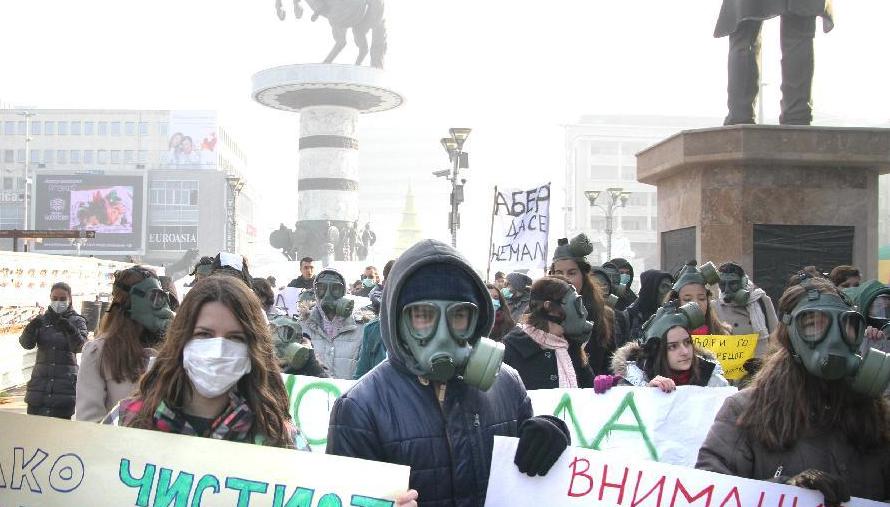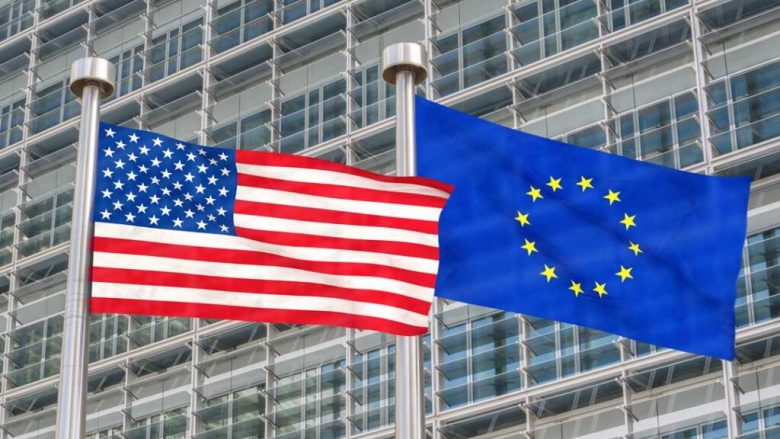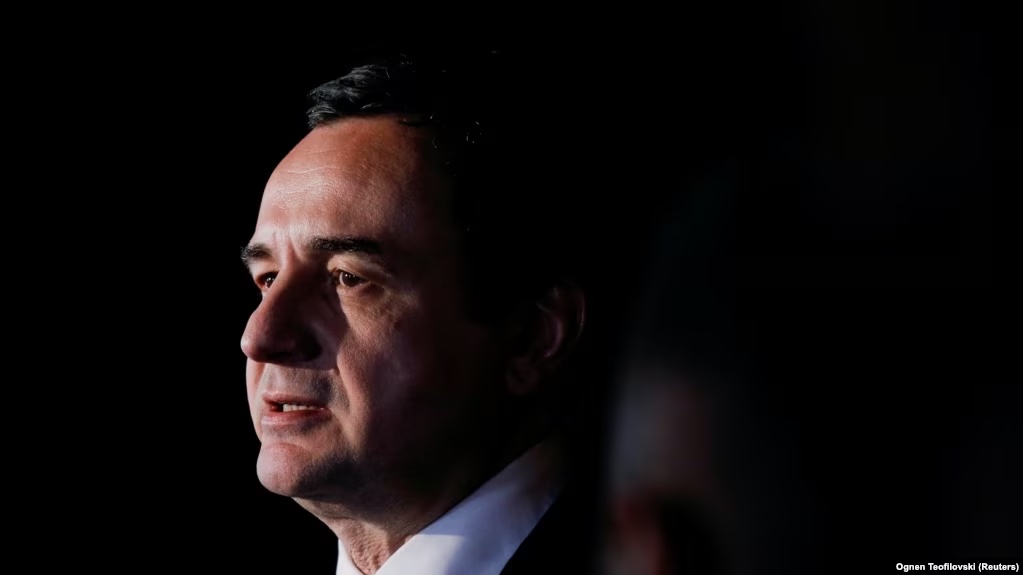Saturday, December 28th 2013

In 2013, Macedonia saw ethnic tensions simmer amid a mass murder trial, street riots and a hero’s homecoming for a convicted war criminal freed by the Hague Tribunal.
January saw the start of a high-profile murder trial in which six men are facing charges of terrorism, suspected of having committed the gruesome murders of five people near Skopje in April 2012.
The prosecution in the ongoing case, locally known as ‘Monster’, charges six ethnic Albanians of murdering five ethnic Macedonians near Skopje in an attempt to provoke ethnic tensions in the country.
Two are being tried in their absence because they are currently in jail in neighbouring Kosovo after being convicted of illegal weapons possession. Police also arrested a seventh suspect in August.
News of the murder raised ethnic tensions in 2012, after groups of ethnic Macedonians staged protests, in some cases turning violent, blaming the killings on members of the country’s large Albanian minority community.
Ethnically-charged riots
In March, the Macedonian capital Skopje was gripped by ethnically-charged riots over the controversial appointment of an ethnic Albanian ex-guerrilla commander, Talat Xhaferi, as defence minister.
Xhaferi’s appointment sparked a backlash from ethnic Macedonian veterans of the 2001 conflict between Albanian rebels and government forces. They were unhappy to see him as the army’s political chief because he once fought against them.
Two days of protests in March escalated into clashes with riot police when ethnic Macedonian youths rioted against Xhaferi’s appointment. Albanians came out the following day in an even more violent counter-protest, alleging they had been targeted by mob attacks.
In early July, 14 people were sent to jail over their involvement in the protests.
Hero’s homecoming for Tarculovski
In April, the authorities staged a hero’s welcome for former policeman Johan Tarculovski, the only Macedonian convicted of war crimes by the Hague Tribunal.
Thousands turned out in central Skopje to welcome him at a government-funded celebration staged for his return.
Tarculovski stood along Prime Minister Nikola Gruevski, paid respect to the fallen soldiers and policemen of the 2001 conflict and was paraded through the main square.
The Hague Tribunal convicted him of leading a police unit that killed Albanian civilians and committed other atrocities.
Unsurprisingly, the country’s ethnic Albanians were not happy about the celebrations for his return.
Spy hunt continues
Meanwhile, Macedonia’s controversial lustration process, aimed at revealing informants who worked for the former Yugoslav secret police, continued despite the high-profile resignations of two members of the Lustration Commission back in December 2012.
Commission members Janakie Vitanovski and Blagoja Geshoski resigned because they said that the lustration process had become “the government’s instrument for the tendentious and selective stigmatisation of its critics”.
In May, the commission headed by Tome Adziev targeted former police minister Ljubmir Frckoski for allegedly ordering the surveillance of opposition members for ideological and political reasons.
Frckoski, who is an outspoken critic of Prime Minister Gruevski, allegedly did this while he was police minister from 1992 to 1996 in the government of the now opposition Social Democrats.
The Frckoski case was the first in which the government body has probed a senior police official, and he now faces a ban on holding public office.
In another case in July, the commission sparked an outcry from authors and academics when it classified one of Macedonia’s best-known writers, the late Slavko Janevski, as a secret police informer.
Janevski, an academic who was born in 1920 and died in 2000, was one of the most renowned Macedonian writers of poetry and prose.
In September, another former interior minister, Tomislav Cokrevski, was targeted for allegedly ordering the illegal surveillance of right-wing activists in the 1990s.
However, in an interview with BIRN, the head of the Lustration Commission, Tome Adziev, denied that the body was an instrument of the government.
Ethnic chills in Struga
There were also ethnic tensions in autumn in the ethnically-mixed south-western municipality of Struga, where Macedonians and Albanians are almost evenly represented.
In September, Macedonians insisted that they would build a new Orthodox Christian church in the Muslim-dominated village of Oktisi despite strong opposition from local ethnic Albanians. Police were dispatched to prevent Albanians from destroying the church’s foundation.
In October, the ethnic Albanian mayor of Struga, Ziadin Sela draw even more attention after he threatened to retaliate after the nearby ethnic Macedonian municipality of Vevcani removed bilingual Macedonian-Albanian signs from its territory.
The move caused Sela to threaten to demolish the recently-built Vevcani entrance gate and a nearby small church on the boundary between the two municipalities.
The central authority intervened by saying that the entrance gate was not on his territory.
In November, the municipality once more became focus of attention when police filed criminal charges against five people for illegally erecting an Albanian war memorial near the town of Struga.
Serbian Tsar upsets Albanians
December saw yet more ethnic tensions when a group of Albanians, in the presence of high-ranking members of the junior ruling Democratic Union for Integration, DUI, made a night-time attempt to demolish a recently-installed bronze statue of Serbia’s medieval Tsar Dusan in Skopje.
They insisted that the statue is offensive to the country’s Albanians, and is that it is illegal.
The action put them in confrontation with their senior government partners, the conservative VMRO DPMNE of Prime Minister Gruevski, which called the attack an act of vandalism.
The statue, erected as part of the government-funded ‘Skopje 2014’ revamp of the capital, continues to stir ethnic tension and the police have been on constant guard nearby to prevent further incidents./balkaninsight




